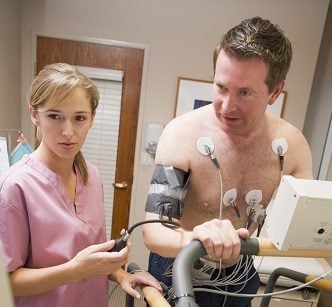
Complete Guide to LPN/LVN Clinical Rotations: What to Expect and How to Excel

Clinical rotations represent the heart of Licensed Practical Nurse (LPN) and Licensed Vocational Nurse (LVN) education. While classroom learning provides the theoretical foundation, clinical rotations transform nursing students into competent healthcare professionals through hands-on patient care experience.
This guide walks you through everything you need to know about LPN/LVN clinical rotations – from what to expect during each specialty rotation to practical tips for success. Whether you're just starting your LPN program or preparing for an upcoming rotation, this resource will help you navigate this crucial phase of your education with confidence.
Understanding LPN/LVN Clinical Rotations
Clinical rotations (also called clinicals or practicums) are supervised, hands-on training experiences in actual healthcare settings. As an LPN/LVN student, you'll typically begin rotations after completing fundamental nursing coursework and skills lab training.
Most LPN/LVN programs include between 500-750 clinical hours spread across different healthcare specialties and settings. These rotations allow you to apply classroom knowledge in real-world situations while being supervised by experienced nursing instructors or preceptors.
RELATED: Learn more about how to become an LPN/LVN.
Common Types of LPN/LVN Clinical Rotations
LPN/LVN students rotate through various healthcare specialties to gain comprehensive nursing experience. While rotations vary by program, most include:
| Rotation Type | Typical Duration | Common Settings | Key Skills Developed |
| Fundamentals | 4-6 weeks | Long-term care facilities, Nursing homes | Basic patient care, Vital signs, Personal care, Documentation |
| Medical-Surgical | 6-8 weeks | Hospital medical-surgical units | Medication administration, Wound care, IV therapy, Time management |
| Maternal-Child Health | 3-4 weeks | Labor & delivery units, Pediatric clinics | Maternal assessments, Newborn care, Pediatric medication calculations |
| Mental Health | 2-4 weeks | Psychiatric facilities, Behavioral health units | Therapeutic communication, De-escalation techniques, Group therapy facilitation |
| Geriatrics | 4-6 weeks | Skilled nursing facilities, Assisted living | Chronic disease management, End-of-life care, Mobility assistance |
| Community Health | 2-3 weeks | Public health departments, Schools, Clinics | Health education, Screening procedures, Vaccination administration |
What to Expect During Your First Clinical Rotation
The first clinical rotation typically focuses on fundamental nursing skills and can feel overwhelming. Here's what to expect:
Orientation
You'll begin with an orientation to the facility, covering protocols, documentation systems, and safety procedures. Pay close attention – this information forms the foundation for all future rotations.
Direct Supervision
Initially, your clinical instructor will directly observe most of your patient interactions. This supervision gradually decreases as you demonstrate competence.
Basic Skills Application
You'll start with basic nursing skills like vital signs assessment, personal care assistance, patient transfers, and documentation.
Limited Patient Assignment
Most programs begin with 1-2 patients per student, gradually increasing the assignment complexity as you progress through the program.
Post-Conference Discussions
Many clinical days end with a group discussion where students share experiences and instructors provide feedback. These sessions are invaluable for learning from peers' experiences.
Essential Preparation for Clinical Success
Before Your Rotation Begins:
- Review relevant skills and procedures you might perform during the rotation
- Research common conditions treated in your assigned unit
- Familiarize yourself with medications frequently used in the specialty
- Prepare your clinical bag with essentials (stethoscope, pen light, scissors, notepad, etc.)
- Plan logistics including transportation, uniform preparation, and adequate rest
The Night Before:
- Review your clinical paperwork requirements
- Set multiple alarms - being late is never acceptable
- Prepare nutritious meals to sustain your energy
- Organize your clinical bag and uniform
- Get adequate sleep - clinical days are physically and mentally demanding
Overcoming Common Clinical Challenges
Performance Anxiety
Nearly all nursing students experience nervousness during clinicals. Combat this by:
- Practicing skills repeatedly in lab settings before clinicals
- Using deep breathing techniques before patient interactions
- Remembering that instructors expect questions and don't expect perfection
Time Management
Patient care frequently takes longer than expected. Improve efficiency by:
- Creating a prioritized task list at the beginning of your shift
- Grouping related tasks when possible
- Communicating proactively with your instructor when falling behind
Documentation Difficulties
Many students struggle with clinical documentation. Enhance this skill by:
- Studying example documentation before clinicals
- Taking brief notes throughout your shift
- Using approved abbreviations correctly
- Reviewing facility-specific documentation requirements
Making the Most of Each Clinical Experience
Active Participation
Volunteer for procedures and patient care opportunities whenever possible. The more skills you practice, the more confident you'll become.
Seek Diverse Experiences
Request assignments to patients with conditions or treatments you haven't encountered yet.
Build Professional Relationships
Develop positive working relationships with staff nurses and other healthcare providers. These connections can lead to job opportunities after graduation.
Reflect on Your Experiences
Keep a clinical journal to record challenges, successes, and lessons learned. Reflection accelerates your professional development.
Ask Questions
Cultivate curiosity and never hesitate to ask "why" when observing nursing interventions.
From Student to LPN/LVN: Translating Clinical Experience to Career Readiness
Your clinical rotations directly prepare you for NCLEX-PN success and job readiness. The hands-on experience gained during clinicals builds the confidence and competence necessary for your transition from student to licensed nurse.
Many students discover their nursing specialty passion during clinicals. Pay attention to which rotations energize and interest you most – this insight can guide your future career choices.
Frequently Asked Questions About LPN/LVN Clinical Rotations
How many hours of clinical rotations do LPN/LVN programs require?
Most LPN/LVN programs require between 500-750 total clinical hours, though requirements vary by state. Check with your state board of nursing or program director for specific requirements in your area.
What should I do if I make a mistake during clinical rotations?
Patient safety always comes first. If you make an error, immediately notify your clinical instructor or supervising nurse. Be honest about what happened, document according to facility policy, and reflect on how to prevent similar errors in the future. Remember that mistakes provide valuable learning opportunities when handled appropriately.
Can I request specific clinical placements?
Most programs assign placements based on educational needs and available sites. However, some programs allow students to express interest in specific specialties for final practicums. Discuss possibilities with your clinical coordinator, especially if you have a clear career direction.
What if I don't feel prepared for a particular skill during clinicals?
Always be honest about your comfort level. It's appropriate to tell your instructor, "I'd like to observe this procedure first" or "I need assistance with this skill." Never perform procedures you feel unprepared for without proper supervision.
How are clinical rotations evaluated?
Evaluation methods vary by program but typically include skills checklists, care plan assignments, documentation reviews, professionalism assessments, and direct observation. Most programs require students to meet all clinical objectives to progress.
Can clinical rotations lead to job offers?
Absolutely! Many healthcare facilities hire students who impressed them during clinical rotations. Treat every clinical day as an informal job interview by demonstrating reliability, strong work ethic, clinical competence, and teamwork.
Related Articles
Featured Article

Cardiovascular Intensive Care Nurse Careers with BSN




